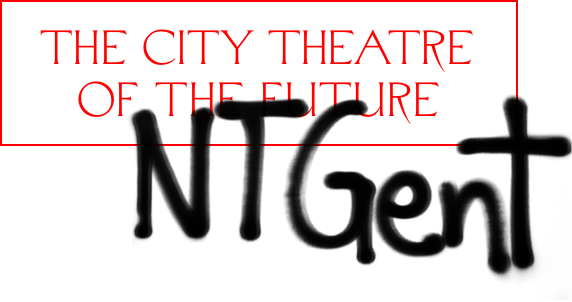Mission statement
As a city theatre, NTGent wants to question, motivate and rouse a diverse audience. it does so by making and presenting high-profile productions and by mobilizing theatre for social debate.
Ghent is our home base. As an open and travelling company, we want to use our productions to bring the world to Ghent and to show them to the world. We want to play a leading role in the Flemish and international performing-arts landscape. We’re an open house, accessible to all.
Internationally, performing arts have long been focused on mastery (artistic expertise) and professionalisation (production infrastructure and support). This verticality is now questioned horizontally by demographic and technological evolutions: the world as a global village, increasing ethnic diversity, the (digital) network as an instrument and as a goal ('capital') itself. They are rapid evolutions that also provoke counter-reactions: the need for slowness, proximity, authenticity. As globalisation continues and the world becomes smaller and smaller, many people crave borders, longing to withdraw and to return to the past. A city theatre, the way we see it, is within the area of tension in these opposite movements. Theatre is always local and live, it is a repetition and a re-enactment of what has been. But theatre is above all a space for experiments for the future.
The city theatre that we are interested in stands between tradition and utopia. It does not remain on the stage on which it was rehearsed, but it tours internationally. And it brings global issues to the city. We will be travelling with our ensemble for research and events: to northern Iraq and Congo, for example. We offer a stage to actors and non-professionals of different nationalities and languages. We make our plays together: with all those involved, with the audience, in a constant interaction with society. After all, we are not only interested in the canon of classical theatre, but especially in the world we live in.
We are searching for new classics, for myths, tragedies and contradictions of our time: by mythologizing current affairs and by updating mythology. This way we want to shape a political, mobile and creative ‘city theatre of the future'.
